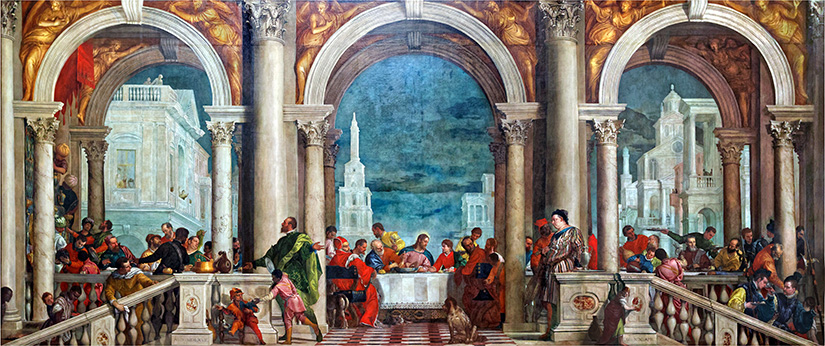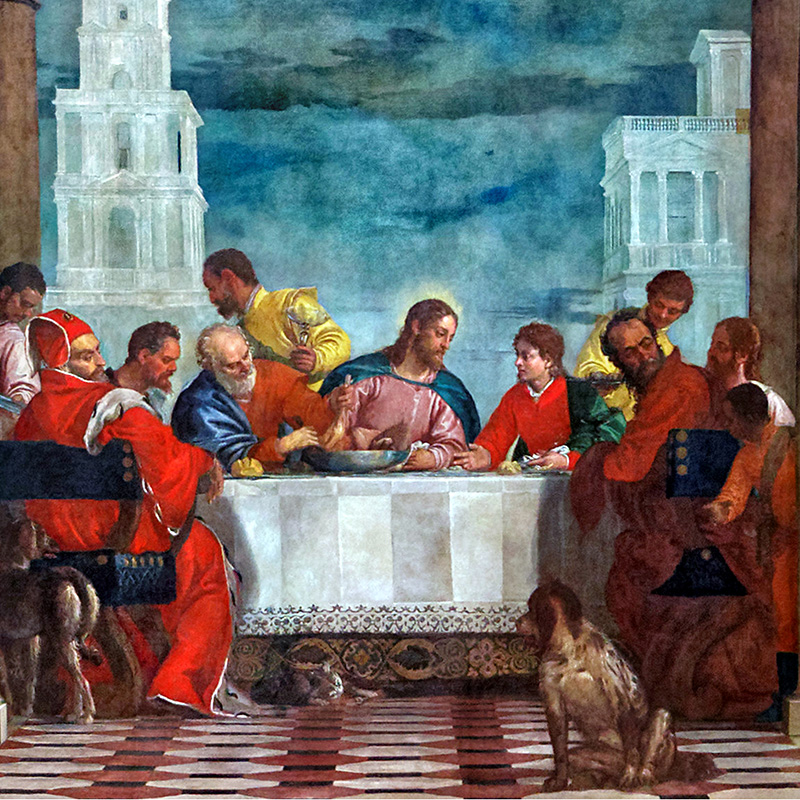
By Jon Wren
In the summer of 1573, Italian Renaissance painter Paolo Veronese was called before a church tribunal to answer an accusation of blasphemy. His crime, according to the church leaders, was his most recent painting—a depiction of Christ and his disciples celebrating Communion with criminals, vagrants, drunks, and even little people. Church authorities were shocked and offended that Veronese would depict Jesus Christ at one of the most pivotal moments in his ministry surrounded by and associating with people of loose morals and low character.
But Veronese would not back down. He told the court, “My art is joyous and praises God in light and color!” For him, part of what made the Last Supper so significant and important was its invitation for all people—not just the righteous and the powerful—to come to the table and experience the grace of God. He saw the Lord’s Supper as a joyous moment of celebration and light, not a judgmental ritual or ceremony that separated the righteous from everyone else.
Church authorities in Venice, Italy, ordered the artwork to be changed and revised. No longer a painting of Communion, they renamed it “The Feast in the House of Levi.” The painting depicts the events in Matthew 9, which was the only way church authorities could accept Jesus being surrounded by sinners.
Today, Veronese’s painting sits in a gallery in Venice.
When we as Christ followers take Communion, we need to be careful to avoid falling into the same misguided thinking as those church leaders at Veronese’s trial. The story of Jesus welcoming sinners is not a one-time event, but rather, his whole mission and ministry! Communion is not a moment for us to be proud of how righteous we think we are; instead, it is a time to reflect and celebrate that a holy God would allow sinners like us to come to his table at all! In fact, Christ not only invites us to come to him, but he invites everyone to come to him joyfully “in light and color” to find hope and forgiveness through his work at the cross.
Jesus said, “For I have not come to call the righteous, but sinners” (Matthew 9:13).
Jon Wren works with the Office of Civil Rights, addressing the impact of gentrification on school desegregation. He loves history, college football, and once got a ticket for driving too slowly.


0 Comments